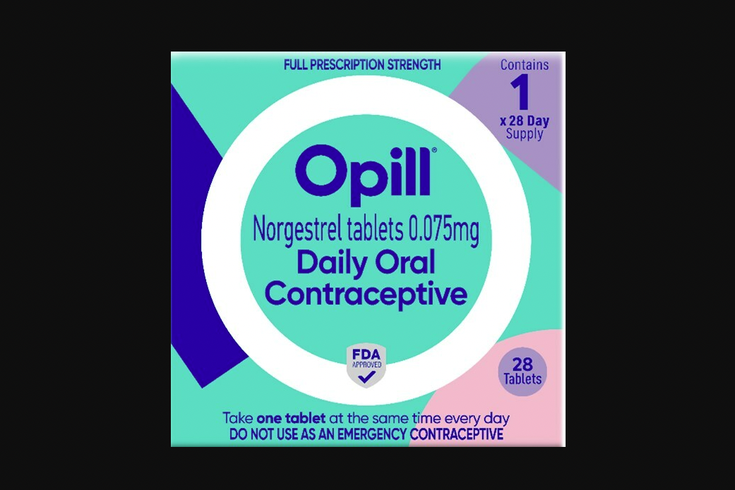
July 13, 2023
 Provided Image/Perrigo
Provided Image/Perrigo
Opill, the first over-the-counter birth control in the U.S., is expected to become available in early 2024 at drug stores, convenience stores, grocery stores and online.
Federal regulators have approved the first over-the-counter birth control pill, a move that removes boundaries to contraceptive care.
Opill, approved Thursday by the U.S. Food and Drug Administration, can be purchased without a prescription at drug stores, convenience stores, grocery stores and online. There are no age restrictions.
Perrigo, the pill's Ireland-based manufacturer, said it will begin shipping the medication early next year. The price has not yet been announced, but over-the-counter medications generally are cheaper than prescription drugs, though they aren't usually covered by insurance.
Opill, a daily tablet known as the "mini-pill," contains one hormone, progestin. It was approved for prescription use in 1973. To become an over-the-counter medication, Perrigo needed to prove to the FDA that Opill could be used safely and effectively by consumers who only relied on the drug's label for instruction.
Hormone-based pills are the most common form of birth control in the U.S., and have been used by millions of women since the 1960s — although they have required a prescription until now. Contraceptive pills are already available over-the-counter across much of South America, Asia and Africa.
"Today's approval marks the first time a nonprescription daily oral contraceptive will be an available option for millions of people in the United States," said Dr. Patrizia Cavazzoni, director of the FDA's Center for Drug Evaluation and Research. "When used as directed, daily oral contraception is safe and is expected to be more effective than currently available nonprescription contraceptive methods in preventing unintended pregnancy."
Almost half of the 6.1 million pregnancies in the U.S. each year are unintended pregnancies, which have been linked to negative maternal and perinatal outcomes. Eliminating the need to obtain a prescription for birth control pills removes a barrier faced by people who do not regularly see a doctor.
"Today's approval is a groundbreaking expansion for women's health in the U.S. and a significant milestone towards addressing a key unmet need for contraceptive access," said Frederique Welgryn, Perrigo's global vice president for women's health.
Medical groups in the U.S., including American Medical Association and the American College of Obstetricians and Gynecologists, have pushed for an over-the-counter birth control for years.
The FDA's approval arrived during a period of legal battles over reproductive rights. Since the U.S. Supreme Court overturned Roe v. Wade last year, many states have placed greater restrictions on abortions and though the abortion pill mifepristone remains available wherever abortion is legal, its fate remains uncertain.
Follow Franki & PhillyVoice on Twitter: @wordsbyfranki
| @thePhillyVoice
Like us on Facebook: PhillyVoice
Have a news tip? Let us know.